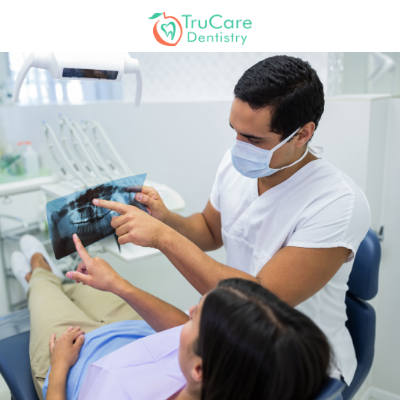 Oral cancer is a kind of cancer that affects both the throat and the mouth. It can develop in any part of the Oral cavity, including the tongue, lips, gums, inner cheeks, roof and floor of the mouth, and tonsils. Oral cancer is a severe health condition that can be life-threatening if not treated promptly. In this blog post, we will understand Oral cancer, the different types of Oral cancer, their treatments, and the prevention of Oral cancer.
Oral cancer is a kind of cancer that affects both the throat and the mouth. It can develop in any part of the Oral cavity, including the tongue, lips, gums, inner cheeks, roof and floor of the mouth, and tonsils. Oral cancer is a severe health condition that can be life-threatening if not treated promptly. In this blog post, we will understand Oral cancer, the different types of Oral cancer, their treatments, and the prevention of Oral cancer.
Types of Oral Cancer
There are several types of Oral cancer, and they are classified based on the affected cell type. The primary common Oral cancer types include:
- Squamous cell carcinoma: It is one of the most common types of Oral cancer, accounting for over 90% of all Oral cancer cases. Squamous cells are flat, thin cells that line the surface of the mouth and throat. When these cells become cancerous, they can form tumors in the Oral cavity.
You may also like to read, 5 Myths About Oral Cancer
- Verrucous carcinoma: This rare Oral cancer accounts for less than 5% of all cases. It typically develops in the gums or the lining of the mouth and appears as a white or greyish lump with a wart-like appearance.
- Minor salivary gland carcinoma: This kind of Oral cancer originates in the minor salivary glands located throughout the Oral cavity. It can develop in any part of the mouth or throat, including the tongue, lips, cheeks, and palate.
- Lymphoma: This cancer affects the lymphatic system, a network of organs and vessels that helps the body fight infections. When lymphoma develops in the Oral cavity, it can cause swelling and pain.
- Melanoma: Skin cancer that can develop in the Oral cavity and typically appears as a dark brown or black lump but can also be pink, red, or white.
Treatments for Oral Cancer
The treatment for Oral cancer depends on the cancer stage and the tumor’s location. The standard treatments for Oral cancer include:
- Surgery: Surgery is often the first-line treatment for Oral cancer. The primary goal of surgery is to remove the tumor and any affected tissue. Sometimes, the surgeon may remove nearby lymph nodes to prevent cancer from spreading.
- Radiation therapy: Always uses high-energy beams to kill cancer cells. It is often combined with surgery to eliminate all cancer cells. Radiation therapy can act as a standalone treatment for small tumors.
- Chemotherapy: It mainly uses drugs to kill cancer cells. It is often combined with radiation therapy or surgery to enhance the chances of a successful treatment outcome and is reserved for advanced-stage Oral cancer.
- Immunotherapy: Treatment that uses the body’s defense mechanisms to fight cancer cells. It can be used with other therapies or as a standalone advanced-stage Oral cancer treatment.
- Targeted therapy: Targeted therapy targets specific molecules involved in cancer growth and combines with other advanced-stage Oral cancer treatments.
Prevention of Oral Cancer
Prevention is always better, and there are several things you can do to eliminate the risk of developing Oral cancer. These include:
- Avoid tobacco use: Smoking cigarettes, chewing tobacco, and smoking pipes or cigars are among the most significant risk factors for Oral cancer. Quitting tobacco use can significantly lessen your threat of developing Oral cancer.
- Limit alcohol consumption: Excessive alcohol consumption is another significant risk factor for Oral cancer. If you decide to drink, achieve this in moderation.
- Eat a healthy diet: Diets such as vegetables and fruits can help to eliminate the risk of Oral cancer. Include plenty of colorful fruits and vegetables in your diet, and limit your intake of processed foods and sugary drinks.
- Practice good Oral hygiene: Regular brushing and flossing can help keep your mouth healthy and reduce your risk of Oral cancer. Ensure to visit your dentist regularly for check-ups and cleanings.
- Protect yourself from the sun: With sun exposure, the risk of lip cancer increases. You can use a lip balm with an SPF and wear an item of protective clothing outside.
- Get vaccinated: The HPV vaccine can help prevent some types of Oral cancer. Talk to your doctor about whether the HPV vaccine is suitable for you.
These steps can help reduce your risk of developing Oral cancer and improve your overall health.
In a Nutshell
Oral cancer is a severe condition that requires early detection and prompt treatment. You should consult your doctor immediately if you notice any changes in your mouth, tongue, or throat, such as lumps, sores, or difficulty swallowing or speaking. Your doctor will determine the best treatment plan for you based on the type and stage of your cancer. However, if you require assistance regarding Oral cancer, feel free to reach us at TruCare for the best emergency dentist in Roswell, GA, or neighboring areas such as Alpharetta, Dunwoody, Marietta, Milton, Sandy Springs, or Woodstock; get in touch with us at (678) 321-7575 or book an appointment with us today!
